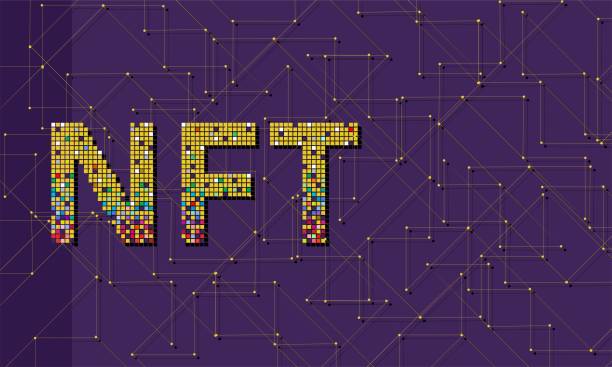Non-fungible tokens (NFTs) are poised to transform real estate by enabling properties to be tokenized and traded as digital assets. From fractional ownership to simplifying transactions, NFTs open up novel opportunities in real estate markets. In this post, we explore the growing intersection of NFTs and real estate along with what benefits NFTs can unlock.
The Promise of NFTs for Real Estate
Several unique attributes of NFTs make them well-suited for digitizing real property:
- Singularity – NFTs tokenize unique assets, just like individual parcels of land.
- Interoperability – Tokens enable seamless transactions and exchange across platforms.
- Transparency – Blockchains provide immutable records of all transactions and ownership histories.
- Automation – Smart contracts can programmatically automate transactions, deeds, titles, etc.
- Accessibility – Tokenized real estate is more divisible, lowering barriers to investment and participation.
- Liquidity – NFT markets provide instant tradeability and monetization compared to cumbersome property sales.
- Security – Cryptography and blockchain protections reduce fraud, forgeries, and title disputes.
With these benefits, NFTs create new value around properties by reinventing how they are managed, exchanged, and owned.
Emerging NFT Use Cases for Real Estate
Here are some key real estate applications already being built using NFTs:
Fractionalized Ownership – One property can be split into multiple NFT tokens to enable shared investment from many owners.
Deed/Title Management – Official deeds and titles can be immutably recorded as NFTs on blockchain.
Transaction Streamlining – NFTs enable frictionless sale, transfer, and exchange of property ownership.
Collateral Tokens – Properties can be tokenized and used as collateral for loans/mortgages.
Improve Liquidity – Property NFTs unlock opportunities to quickly resell or extract equity as needed.
Investment Funds – NFTs provide tradable shares in pooled portfolios like REITs and property funds.
In each case, NFTs introduce digitization, automation and fractionalization to make real estate more usable and accessible.
Benefits for Individual Owners
For individuals, NFTs offer several advantages:
- Fractional ownership – Co-own luxury properties previously inaccessible to sole ownership.
- Access equity – Unlock property value without selling entire asset using fractional NFTs.
- Streamline sales – NFTs simplify listing, advertising, closing, and transferring ownership.
- Liquidity – Instantly monetize a fraction of a property during periods of illiquidity.
- Transact across borders – Geographic boundaries disappear with globally tradable property NFTs.
- Portfolio diversification – Own small shares across many properties to mitigate risk.
Overall, NFTs introduce unprecedented flexibility into asset management for individuals.
Advantages for Commercial Real Estate
For businesses and investors, NFTs provide similar benefits:
- Tradeable shares – Transform illiquid assets like buildings into tokenized securities.
- 24/7 markets – NFTs enable around the clock global trading.
- Automated compliance – Smart contracts can be programmed to meet securities regulations.
- Access global capital – Abundant liquidity by exposing assets to broader digital investor bases.
- Cost reduction – Streamline paperwork, record-keeping, transactions using NFT automation.
- Data transparency – Give investors real-time performance data via blockchain tracking.
Taken together, these capabilities modernize commercial real estate investing by increasing liquidity and connectivity.
Key Challenges With Adoption
Mainstreaming real estate NFTs has obstacles:
- Technical expertise – Requires developer resources to create properly formatted NFTs.
- Physical access – NFT ownership does not automatically confer occupancy rights.
- Regulatory uncertainty – Real estate has complex regulations that must accommodate NFTs.
- Appraisal complexity – Challenging for appraisers to assign accurate values to fractionalized NFT properties.
- Tax implications – Unclear tax obligations when transacting fractional ownership across borders.
However, most challenges are addressable as NFT platforms mature, regulations evolve, and blockchain capabilities advance.
The Future of Property Ownership
NFTs are poised to fundamentally reshape real estate markets by introducing digitization, instant liquidity, fractionalization, and global connectivity. Expected innovations include:
- Integration of rental/lease payments into smart contracts tied to NFTs.
- Minting of standalone NFTs representing mortgages/liens that attach to property tokens.
- Property management platforms giving fractional owners access, voting rights, etc. based on NFT shares.
- Fractional tokens converging with traditional real estate funds like REITs.
- NFT exchange features like bidding directly built into property listings sites.
- Rise of metaverse real estate linked to NFTs giving virtual land utility and value.
- Automated deed, title, ownership transfer upon payment finalization.
As property digitization accelerates, NFTs provide the missing rails for efficient markets, fractional ownership, and embedded automation.
Conclusion
NFTs are set to provide long overdue modernization of outdated real estate investing and ownership models. By applying blockchain's capabilities, NFTs can transform illiquid assets into dynamic, instantly tradable, fractional commodities. While still early, innovators in the space have incredible opportunities to build the next generation infrastructure for how the world's largest asset class operates.
Incumbents and entrepreneurs alike should pay attention as property digitization will disrupt existing value chains. There are tremendous rewards for those who harness NFTs early to develop the platforms, protocols, and standards for tokenized real estate's future. Partnering with specialized NFT marketplace development company can help accelerate this future. Real estate NFTs expand what is possible and reshape markets for the better.







